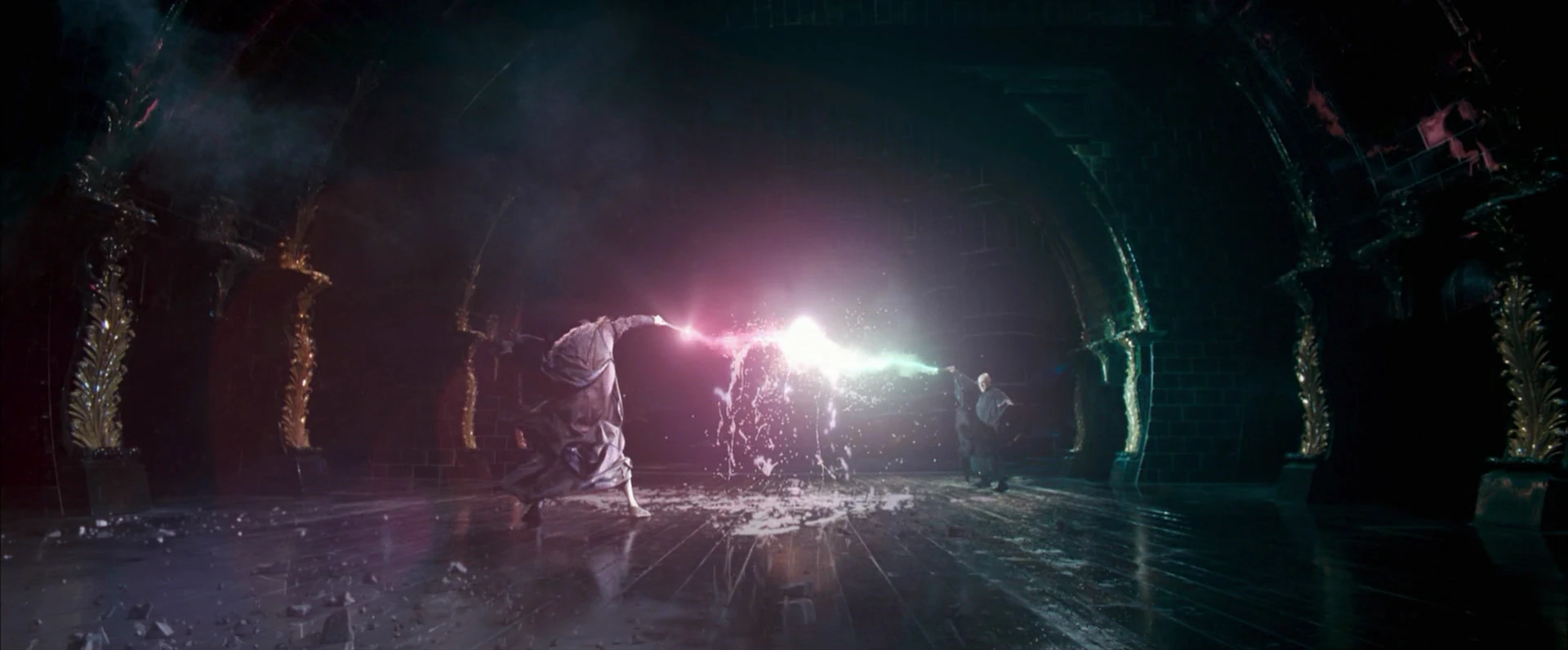‘What does he want?’ I asked a group of men gathered around the cake table as I set down the pot. ‘This man in Germany, does he want war?’ I knew it was poor talk for a party, but somehow thoughts of Willem always set my mind on hard subjects.
A chill of silence fell over the table and spread swiftly around the room.
‘What does it matter?’ a voice broke into it. ‘Let the big countries fight it out. It won’t affect us.’
‘That’s right!’ from a watch salesman. ‘The Germans let us alone in the Great War. It’s to their advantage to keep us neutral.’
‘Easy for you to talk,’ cried a man from whom we bought clock parts. ‘Your stock comes from Switzerland. What about us? What do I do if Germany goes to war? A war could put me out of business!’
And at that moment Willem entered the room. … But every eye in the room had settled on the figure whose arm Willem held in his. It was a Jew in his early thirties in the typical broad-brimmed black hat and long black coat. What glued every eye to this man was his face. It had been burned. In front of his right ear dangled a grey and frazzled ringlet, like the hair of a very old man. The rest of his beard was gone, leaving only a raw and gaping wound.
‘This is Herr Gutlieber,’ Willem announced in German. ‘He just arrived in Hilversum this morning. Herr Gutlieber, my father.’
‘He got out of Germany on a milk truck,’ Willem told us rapidly in Dutch. ‘They stopped him on a streetcorner—teenaged boys in Munich—set fire to his beard.’
Father had risen from his chair and was eagerly shaking the newcomer’s hand. I brought him a cup of coffee and a plate of Nollie’s cookies. …
Herr Gutlieber sat down stiffly on the edge of a chair and fixed his eyes on the cup in his lap. I pulled up a chair beside him and talked some nonsense about the unusual January weather. And around us conversation began again, a hum of party talk rising and falling.
‘Hoodlums!’ I heard the watch salesman say. ‘Young hooligans! It’s the same in every country. They police’ll catch up with ’em—you’ll see. Germany’s a civilized country.’
—Corrie ten Boom, The Hiding Place1
✠ ✠ ✠
I’ve come to a decision that I’d like to share with my readership, in hopes of persuading you to do the same if you’re in a position to do so. Said decision is about Donald Trump, and what I mean to do about him, and what I will beg God to do about him.
Normally, I do not vote. This is because of my anarchist beliefs. Since I believe that government ought to be as limited and decentralized as possible (and, correspondingly, that countries as big as the US—or a whole lot of others—ought to be broken into multiple entities), I consider direct participation in its politics a kind of hypocrisy on my part. If what you want is a new system, implicit coöperation with the normal functioning of the old system is, at best, a pretty mixed signal.
However, if there seems to be a real danger that Donald Trump will win the presidency this November, I will vote.
Now, since I live in Maryland, I don’t think there’s any real reason to fear (or hope) that my vote will sway the state one way versus another. It’s a solidly blue state, and can probably be called for Hillary Clinton even now, in the midst of the scandal of the DNC’s sabotage of the Sanders campaign. Partly for that reason, if I vote, I plan to vote for the Green Party candidate, Jill Stein2; because if I vote at all, it’ll be to make a point to a possible Trump administration.
That point being: I dissent; I reject; everything about such a government that is not merely ridiculous is abhorrent to me, and I will not give it the smallest hint of my approval.
Except this. This can stay.
Trump is unfit to lead this country. Trump is unfit to run a sandwich shop. His business ventures have been bankrupted five times in twenty-three years; nor, as he likes to imply, did he build his business from scratch—he inherited it from his father, which wouldn’t matter except that he so badly wants to fudge any and all facts he dislikes. His numerous lawsuits for defamation (of which he has lost many) suggest it, as do the thirty-odd liens acquired against his properties by the New York State Department for nonpayment of taxes. All this even apart from the mere fact that it’s hard to understand any honest man, in any business, being engaged in over three thousand lawsuits. He is a chronic liar. Tony Schwarz, Trump’s ghostwriter for The Art of the Deal, recounted the headache of getting any kind of facts out of Trump for the ostensible autobiography they were writing.
After hearing Trump’s discussions about business on the phone, Schwarz asked him brief follow-up questions. He then tried to amplify the material he got from Trump by calling others involved in the deals. But their accounts often directly conflicted with Trump’s. ‘Lying is second nature to him,’ Schwartz said. ‘More than anyone else I have ever met, Trump has the ability to convince himself that whatever he is saying at any given moment is true, or sort of true, or at least ought to be true.’ … ‘He lied strategically. He had a complete lack of conscience about it.’ Since most people are ‘constrained by truth,’ Trump’s indifference to it ‘gave him a strange advantage.’
He has been accused of multiple rapes, in conjunction with Jeffrey Epstein, a confirmed sex offender against underage girls. He has declined to dissociate himself from—often enough, actively justified—acts of violence on the part of his supporters, notably against blacks and Muslims. He has frankly refused to dissociate himself from neo-Nazi organizations and the Ku Klux Klan. He has ordered security guards at his rallies to confiscate (that is, steal) the property of protesters. He has openly discussed plans to commit war crimes, up to and including the mass murder of women and children. There is simply no truth, no law, no decency, and no right that this man can be trusted to respect.
The only cases I’ve seen made for him are these. First, that he’s a political outsider and therefore a welcome relief from the corruption and cynicism of Washington. Far be it from me to praise the corruption and cynicism of Washington, but replacing a familiar crook with an incompetent egomaniac and professedly worse crook on the grounds that it’ll make a change is, well, not technically a false line of reasoning.
Second, that he’s pro-life. He isn’t. The evangelical vote has been tied to the pro-life cause since the early seventies, and in my view with good reason, though I would point out that a holistic pro-life outlook requires certain attitudes toward social welfare and war, as well as abortion. Unfortunately, that’s led to the delusion that, because pro-life politicians have usually been Republicans since the Reagan era, therefore any Republican politician is pro-life and any Democratic one is pro-choice, and therefore an evangelical must always vote for the GOP. But even if this had been true through the 1990s and 2000s, which it wasn’t, it has no bearing on Trump. The most he’s been able to say is that he is pro-life ‘with qualifications’: i.e., not pro-life.
Third, that all his demagogic rhetoric must be merely a tactic; that it conceals some deeper personality and thought. Well, the man who wrote his autobiography doesn’t think so. And since all we’ve had so far is the aforesaid demagoguery, I think it argues an immense faith to seriously believe that there’s more; and I don’t like to make human beings the object of that kind and degree of faith.
And why would I vote for Jill Stein? Well, the only stance of hers that I know I disagree with is that she is pro-choice: her general social policy is attractive to me. That she is pro-choice is a serious problem for me—I don’t, can’t, believe that any human right is more fundamental than the right to live, or that the liberty of one person can reasonably be thought of as abrogating the life of another. However, she has also made a point, when asked about her views of abortion, of discussing the needed improvements in the welfare and resources of pregnant women, improvements that (in her words) would make abortion ‘less necessary.’ If implemented, that would save more lives than any legal act since the partial-birth abortion ban of 2003; and that makes me able to countenance the compromise involved even in a professedly symbolic vote for a pro-choice politician.3
But, if I decide to vote, it won’t be because I think President Stein could be sworn in in 2017. It will be to say, loud and clear: This is the America I’d want to live in. Not Trump’s. I reject, loathe, and defy everything about him.
If he’s elected, I fear for my neighbor’s safety: my black neighbor; my Muslim neighbor; my immigrant neighbor; my international neighbor on the other side of the world. I want it known for whom I will lift my hands in prayer—and for whom I will do whatever I’m able, to help them lead safe, happy, long lives.
✠ ✠ ✠
1This party, celebrating the one hundredth anniversary of the Ten Boom Watch Shop, took place in 1937. The state of Israel gave Corrie, and later her sister Betsie and father Casper (who died during the war, the former in the Ravensbrück concentration camp), with the title Chasidey umot ha-Olam, ‘Righteous Among the Nations,’ for their work in concealing Jews and helping them escape during the Holocaust.
2Most probably. I haven’t ruled out Darrell Castle, the Constitution Party candidate, who is credibly pro-life; however, his isolationist words about securing the US border (gotta watch those hooligan Canadians) and withdrawing from the UN and NATO are rather alarming to me.
3The USCCB guidelines for Catholic voters are that, when every plausible candidate advocates a grave evil, the voter may either conscientiously abstain from voting, or decide on practical grounds which one is likely to do the least evil. Since the only plausible candidates are precisely Clinton and Trump, both of whom advocate grave evils—abortion access in Clinton’s case, basically everything he says in Trump’s—I am considering the pragmatic option, though only as a symbolic protest.





_-_Google_Art_Project_-_edited.jpg/1280px-Pieter_Bruegel_the_Elder_-_The_Tower_of_Babel_(Vienna)_-_Google_Art_Project_-_edited.jpg)



